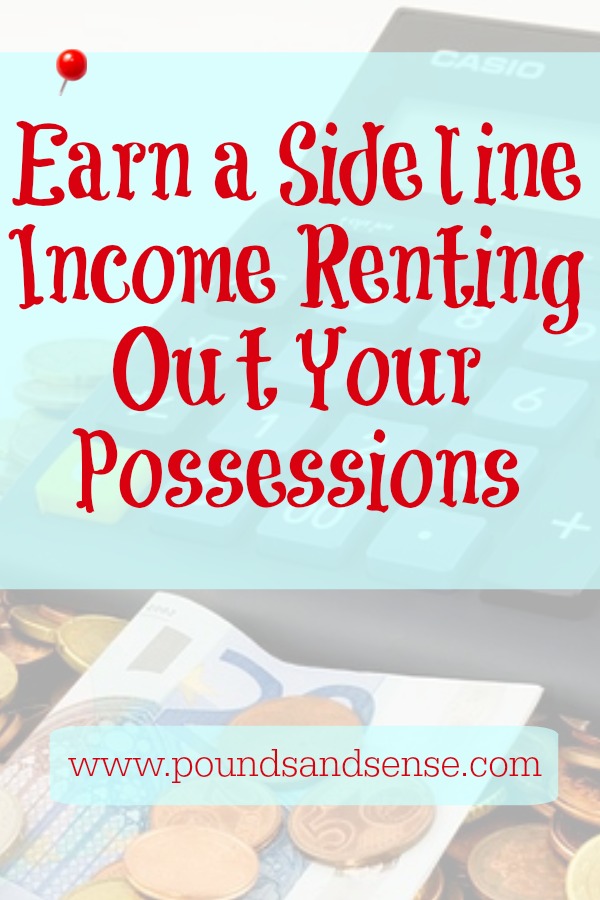Earn a Sideline Income Renting Out Your Possessions
Lots of us have belongings we seldom use but don’t want to get rid of. If that includes you, rather than letting them gather dust, why not have them make money for you by renting them out?
This is another manifestation of the so-called sharing economy, where people make money and save money by sharing items of all kinds. The trend has been driven by peer-to-peer rental websites such as Rent Not Buy, Rent My Items and Zilok. These sites make it easy for would-be lenders and borrowers to find each other and agree terms.
People can list items on the sites they are willing to lend, along with what they are charging and any special conditions (e.g. whether a returnable deposit is required). Would-be borrowers can then contact them directly or via the site.
Most peer-to-peer rental websites don’t charge for listing items. They typically make their money by taking a cut of the fee paid and/or other methods such as advertising.
What Can You Lend?
The range of items listed on peer-to-peer rental sites is huge.
At one end of the scale is industrial and agricultural machinery. At the other is household items such as cameras, tents, power drills, computers, kitchen equipment, and so on.
Fashion and beauty is another popular area, with people (mainly women, I assume!) offering to lend their handbags, designer shoes, ball gowns, and so on.
Other items regularly offered include musical instruments and equipment, art and collectables, disability aids, bicycles and cars, and even boats.
Lenders can specify dates when an item isn’t on offer if they will be needing it themselves. A facility is provided on most rental sites to allow borrowers to check whether a particular item is available on the dates they want it.
What Can You Earn?
Lenders specify a rate per day, week and/or month. Obviously, the more valuable the item, the more borrowers would expect to pay. Here are a couple of example items from the Rent Not Buy website.
(1) 5m bell tent
Location: York
Minimum rental period: 3 days
Rate: £20 a day or £100 a week
Deposit required: £150
Other requirements: Photo ID required.
(2) Canon 550D camera with two lenses and a battery pack
Location: Bristol
Rate: £10 an hour, £20 a day or £60 a week
Minimum rental period: 1 day
Deposit required: £150
Other requirements: Must return in same condition and without any damage. Memory cards must be wiped on return. Cannot be rented for more than 2 weeks.
If you want to hire out possessions of your own, the best plan is to search Rent Not Buy and the other sites mentioned above and see what people are charging for similar items. This should give you a good idea of “the going rate” for whatever you want to lend.
More Tips
Here are a few more tips for anyone hoping to make money this way.
- Clearly you should take sensible precautions to minimize the risk of loss or damage to your possessions. Always check a potential borrower’s feedback on their public profile. This will reveal what other lenders have said about their experiences renting to this user.
- Asking for a deposit is another safeguard. It’s also a good idea to ask the borrower for proof of identity (a driving licence or passport, for example) and take a photo of this.
- Insurance is also a consideration. Some of the more specialized rental sites (see below) provide insurance for lenders so they are covered if their item is damaged. With expensive items especially it is important to check what cover is on offer from the rental site, and also whether your normal household insurance would pay out in a worst-case scenario.
- As well as the general sites already mentioned, there are specialist sites that are worth considering for more expensive and/or unusual items. Examples include Spinlister for bikes, The Handbag Rental for designer handbags, and Curtsy for fashion clothing.
- Remember that any money you make from lending possessions counts as taxable income and should be declared to HMRC. Failing to do this could land you with a tax bill and a fine on top if they find out.
- Even if you don’t have any items you want to rent out at the moment, you can still save money by using peer-to-peer rental sites to borrow products you only need occasionally.
Good luck, and I hope you make lots of money from the sharing economy!
If you have any comments or questions about this post, as always, please do leave them below.


January 24, 2018 @ 2:25 pm
Wow, it is amazing how many different methods there re to make a bit of extra cash these days 🙂
January 24, 2018 @ 4:27 pm
An interesting concept, I’ll have to have a think if there’s anything anyone would even want to rent of mine (without me having to pay THEM to do so!) Another great post, hadn’t really thought this existed for everyday folk to rent out their stuff! 🙂
Caz
January 26, 2018 @ 10:56 am
Thanks, both. Yes, this can be a great method for both making money and saving money.
58 Unusual Ways to Make Money - Savvy in Somerset
July 18, 2019 @ 9:07 pm
[…] Earn a Sideline Renting Out Your Possessions – Pounds and Sense […]